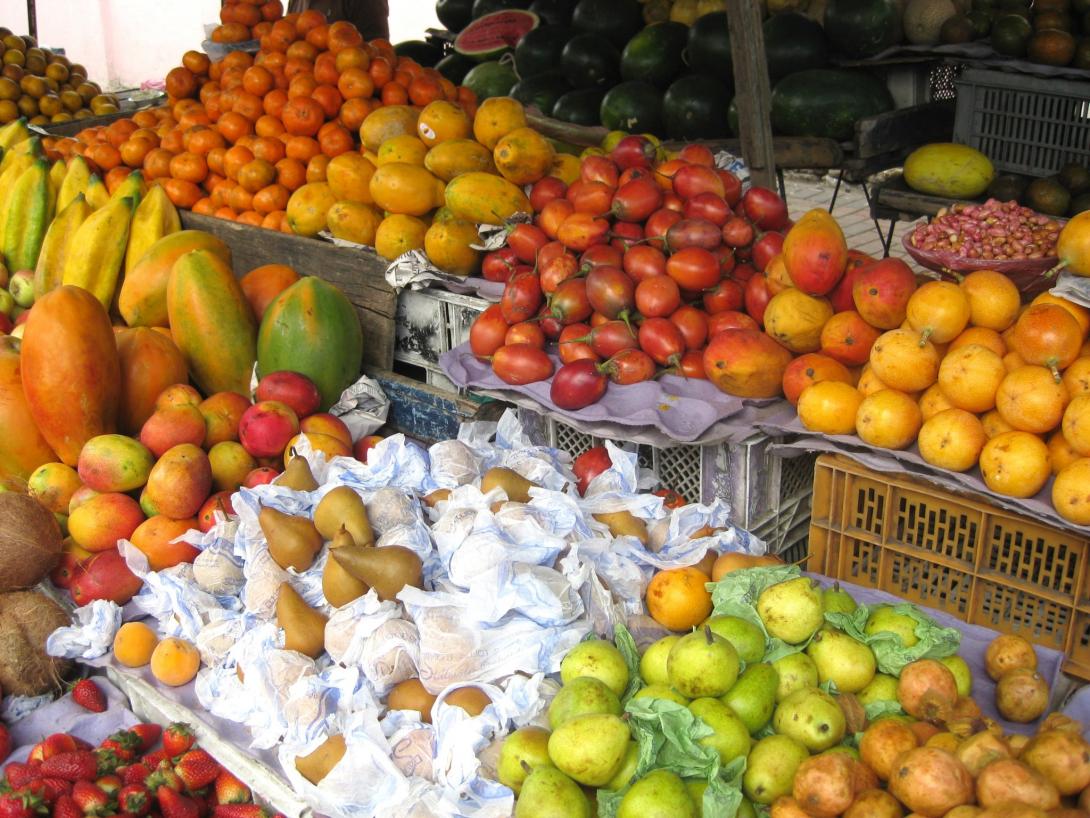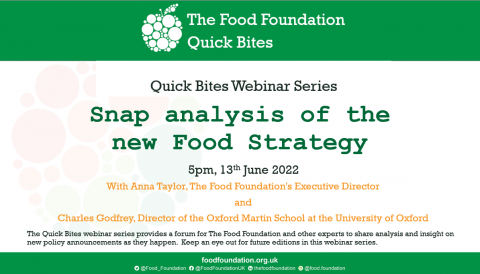24 June 2022
Mind the food leadership gap

Now that the dust has settled after the publication of the Government’s Food Strategy, there’s time to reflect on where it leaves us on the long term agenda of shifting the food system so it protects our health and our planet. The time horizons in politics at the moment seem to have condensed to weeks rather than years and this is making any consideration of long-term change difficult to land.
So what’s the current state of affairs? I think this is best described as food is everyone’s business but no one's responsibility. The Department for Education is in charge of school food but education standards are (understandably) a much bigger priority; DEFRA’s core constituencies are farmers and the food industry but supporting the nation to shift to healthy and sustainable diets is a secondary concern. When it comes to OHID/DHSC, you only need to look at the health budget to know that treatment of disease is much higher order priority than preventing it through eating well; and the Department for Work and Pensions seem to be set on passing the buck of unparalleled levels of food insecurity among benefit claimants to DEFRA. It’s easy to see how this lack of overarching leadership forms and much harder to work out how to fix it.
I think the first question to ask is whether it really matters. Not everything can be a priority and surely if the Departments do a good job on food, it doesn’t matter if it’s not their top priority. That would be true if the Departmental goals didn’t conflict within one another meaning that good work in one Department can be undermined by another – whether it is DEFRA wanting to uphold food standards to protect UK farmers versus DIT wanting to clock up the free trade agreements; or DCMS wanting to protect the creative industries while DHSC wants to clamp down on junk food advertising. The absence of an overarching set of goals to which the government is committed and a process for prioritising policy measures across Departments is a constant drag on any progress being made.
So how to fix it? In the development of National Food Strategy Independent Review, we thought long and hard about it. Creating new governance bodies could be a key part of the solution but there is, it seems, zero appetite for this and so in the end Henry Dimbleby recommended a Good Food Bill to set out the goals of the food system (the north star), a process for tracking progress towards those goals, and the Food Standards Agency (FSA) lead the development of a statutory, independent annual monitoring report to parliament. This would have been fairly light touch but still failed to gain the support of the Government in the Food Strategy published last week. Rather, some goals were stated in loose terms: DEFRA committed to write a progress report (with, importantly independent analysis from the FSA, Office for Environmental Protection and the Climate Change Committee) – but it was light on detail. Even if this happens, it is very difficult to see how this could drive the alignment of food policy across government and the business community which is so desperately needed to accelerate progress. Perhaps if the Health Disparities White Paper made the targets statutory and put the reporting on a legal footing, there would be a stronger foundation for change.
So where does it leave us? Strangely, it leaves us in the midst of a massive food crisis which is pushing millions of people across the world to the brink of starvation, inflation in the UK into double digits, simultaneously setting back progress on health and environment, but without anyone leading a long term change agenda. Strange, but true.






